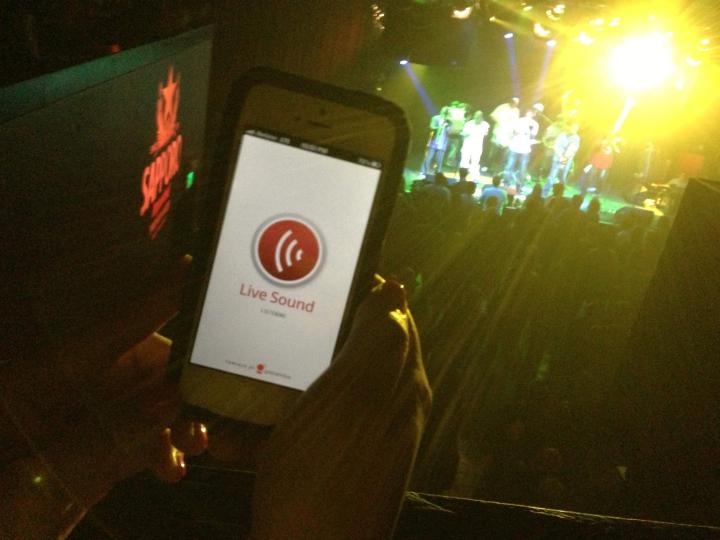
Music festivals are good for a lot of things: Finally seeing Bruce Springsteen’s jeans in person, having an excuse to wear a sheer floral jumpsuit in public, and paying an obscene amount of money for a small domestic beer. But they’re not so great if you find yourself in the back of a crowd listening to an incredible song, but you’re too far away to see what band is playing or find out what your new summer jam is.
There are plenty of music recognition apps on the market you can download and try to use at festivals, but most of them fall short when it comes to identifying live music, since audiences distort sound, and songs don’t always sound the same as they do on the album.
And that’s the problem MusicID Live is prepared to fix. It’s a new technology from Gracenote, a company owned by Sony that specializes in audio and video recognition. And if they get their way, you won’t have to stand there wondering what you’re listening to after you’ve wandered past one of the smaller stages at Coachella or stumbled upon a fascinating DJ set at Lollapalooza.
Here’s how it works: Festivals and other apps will use the MusicID Live API to work together identifying songs. An operator near the sound board at a concert – a producer, or anyone working for the musician – will hook the board up to the MusicID Live system, which will then connect to apps using the technology. Unlike most music recognition apps, it requires this step because analyzing things like chord structure and melody doesn’t work as well when you’re dealing with live shows, so initially the app will require a direct connection with the soundboard at the concert. Once that’s established, though, audience members with these apps will be able to hold their phones up like they do using any standard music recognition app, and the live song will instantly be identified. Once it’s identified, the technology will kick you over to iTunes, where you’ll be able to download the song.
“The MusicID streaming technology is really all about when you go to the stage and hold your phone in the air, and we have the fingerprints from the live music playing live in the server in 75 milliseconds,” Gracenote CTO and co-founder Ty Roberts explains.
Festivals are notoriously bad places for phone reception, but they’ve been improving in recent years, and now most major music melees are developing their own apps and taking note of fans with data plans, incorporating social media and other digital connection opportunities into their plans. And the type of audience members who get exciting about tweeting at Jay-Z while he’s on stage are also the type who are going to want an app to tell them what songs they’re hearing. “We’ve been waiting for festivals’ connectivity to catch up,” Roberts says, “And for them to see the need to innovate a platform that’s designed for the festivals. There isn’t such a thing. There are guys making apps for festivals, but not building a platform that keeps improving.”
Now that festivals are ready for smartphones, Gracenote is working to make sure its live music recognition software gets integrated into the big summer bashes. And the company is working on building up its database of live music fingerprints so that the software can recognize live music even without someone plugging in the software to musician’s sound boards in the future.
The Gracenote team created the API specifically for Outside Hacks, the hackathon for the Outside Lands music festival, and they demoed the technology at an awards show for the music festival. They’re in talks with a variety of businesses and festivals, but say it’s too soon to reveal names – but if they hook up with established music recognition apps like Shazam or Soundcloud, this would be a huge boon for festival-goers eager to remember the songs they hear.
Editors' Recommendations
- YouTube may finally loosen its rigid rules around copyrighted music
- Why have Americans turned a cold shoulder to messaging giant WhatsApp?


